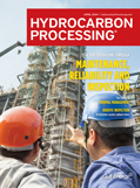ExxonMobil, UOP to upgrade production technology for Bosnian refinery
The alliance of Honeywell’s UOP and ExxonMobil Research and Engineering Co. (EMRE) was chosen Tuesday by Rafinerija Nafte Brod, Bosnia and Herzegovina’s sole oil refinery, to provide technology for upgrading the quality of refined lubricants and fuels.
The licensing agreement is the first under a joint licensing alliance formed by UOP and EMRE last year.
 The new technology will allow Rafinerija Nafte Brod to improve its product quality and environmental performance, the companies said.
The new technology will allow Rafinerija Nafte Brod to improve its product quality and environmental performance, the companies said.
The refiner will combine UOP’s Unicracking hydroprocessing solutions with EMRE’s distillate and lubricant de-waxing technologies to produce ultra-clean jet and diesel fuels and high-quality lubricant base stocks.
“The new Unicracking complex will help the refinery increase its fuel and lube yields through an integrated and cost-effective approach,” said Pete Piotrowski, vice president and general manager of process technology and equipment for UOP.
“The EMRE technology platform provides a one-stop solution for Rafinerija Nafte Brod’s hydroprocessing and fuel de-waxing needs,” added Vince Alberico, manager of technology, sales and licensing for EMRE.
The complex will include UOP’s two-stage Unicracking process integrated with ExxonMobil’s MSDW process for selective dewaxing lubricant feedstocks, and its MIDW processes for dewaxing diesel feedstocks.
The complex will upgrade more than 45,000 bpd of kerosene, diesel and vacuum gas oil feedstock into high-quality diesel and jet fuels.
It will also produce high-quality base oils that will be used for the production of Group II and Group III lubricants at Refineria Ulia Modricha, which is part of the oil refining production chain in Bosnia and Herzegovina.
The new complex is scheduled to start operations in 2016.
UOP says its Unicracking technology provides flexibility to upgrade a variety of feedstocks to high-quality, lighter transportation fuel products.
It can also be used to produce low-sulfur naphthas for reforming into gasoline, or to upgrade FCC products for additional distillate production or sulfur removal.
Meanwhile, ExxonMobil’s MSDW and MIDW processes are advanced proprietary technologies to optimize production of lubricants and distillate fuels, the company explains.
The MSDW process is designed to overcome high-sulfur environments and provides the highest yields and viscosity available in the industry, according to the company. MIDW is a selective catalytic dewaxing process that can improve yields of high-quality diesel with positive cold flow properties.






Comments